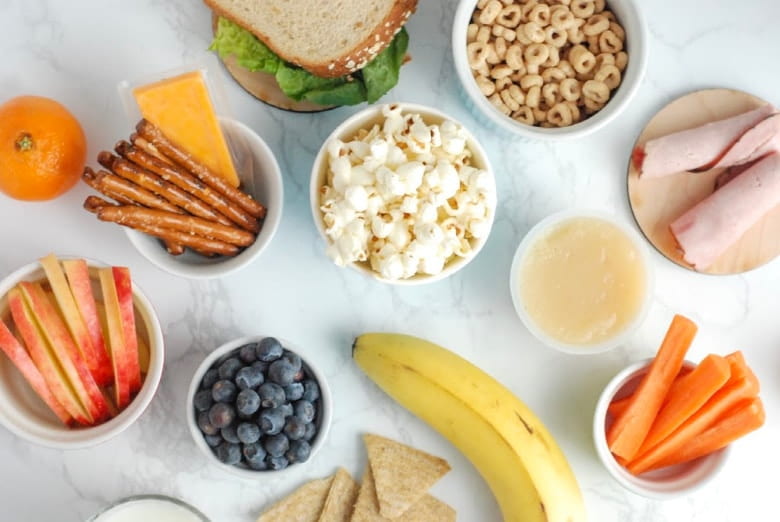If you have teens at home, you know that snacking is a big deal! We need to keep in mind that at this stage in their lives, teens are growing and need the extra nutrition that snacks can provide. If planned right, snacks can help give the energy boost teens need between meals and much-needed nutrients for their growing bodies. Snacking is important and we need to teach teens how to make good choices. We can start by showing them to choose nutritious foods from the MyPlate food groups. Then, explain that foods that are not good choices are often those that contain “empty calories”. This means that those foods don’t have many of the nutrients that their growing bodies need, such as vitamins and proteins. Instead, they contain things that we don’t need, which are solid fats and added sugars. If your teens snack on cakes, cookies, soda, ice cream, fruit snacks, and candy, these empty calorie choices are not helping their bodies function at their best. These foods will often leave them feeling hungry, tired, and weak. They are okay to eat once in a while, but not on an everyday basis. When they select snacks that are packed with the nutrients their bodies need, they will have more energy. Choosing fruits and vegetables as snacks help teens to grow strong and prevents sickness and diseases. Fruits and vegetables are portable too, good for on-the-go.
Another way to show teens how to snack right is to be a good role model for them. Make sure you are eating healthy snacks along with them. Let them know how you make your snack decisions and help them make smart snacking choices by:
- Learning to snack when they are hungry, not just eating because they are bored or for emotional reasons (this can lead to weight gain).
- Having snacks planned and in portion sizes ahead of time (fix snacks in advance—wash and cut up fruits and vegetables, and have air-popped popcorn, low-fat cheese and whole grain crackers ready to go in portion-sized containers). Save time by having these ready to grab and go.
- Practicing food safety. Teach teens to keep perishable foods refrigerated or in a cooler bag with ice packs to help reduce the risk of food poisoning.
For more information, check out the following resources:
Smart Snacking for Adults and Teens:
https://www.eatright.org/-/media/files/eatrightdocuments/nnm/smartsnackingforadultsandteens.pdf
Snacks for Healthy Kids:
https://store.extension.iastate.edu/product/4605
50 Healthy Snacks for Children and Teens:
https://www.talawanda.org/media/foodservices/Information_50HealthySnacks.pdf
All Blogs are written by Professionals in the fields of Nutrition, Human Development and Diabetes.
